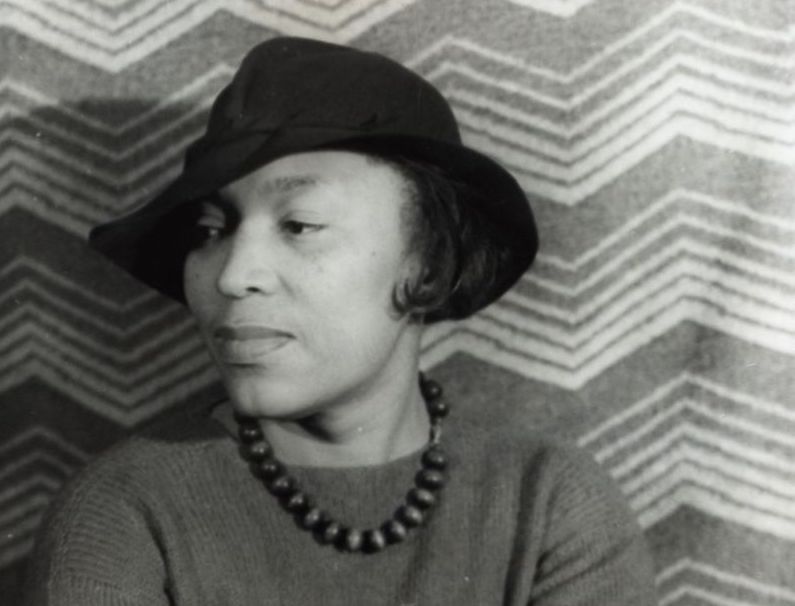To Teach Equity, We Should Choose Modern Texts

A colleague of mine recently received an interesting reaction to Zora Neale Hurston, when a young black man in his class declared one of Hurston’s essays to be “bullsh**.”
The student wasn’t interested in Hurston’s perspective on race, in a piece written in 1928. While my friend handled the incident as well as possible, it gave our whole PLC pause, since it raised an important question:
When selecting texts for an English classroom, how do we rank student interest and equity?
For many of us, the gut response is to look to The Canon. We find reputable voices from across time and distance, and select texts that diversify our collection of readings.
Which gives most English classes something that looks roughly like this:
- Shakespeare
- Hemingway
- Fitzgerald
- Lee
- Miller
- And a grab-bag of other White or European or early-American authors
And then, for balance and equity we might add:
- Cisneros
- Harlem Renaissance voices
- MLK
- Amy Tan
- And Toni Morrison, if the school district will allow it
I’m not looking to unfairly profile anyone here. But the list of names tends to be finite.
Yet for non-white or non-male students in your district, these canonical texts, which felt relevant not so long ago, might not resonate today.
This was the case in my colleague’s class.
Hurston’s piece is mainly about taking life by the horns in spite of adversity. But in the process of being pro-self-confidence, she takes more than a few shots at fellow African-Americans who, she believes, are too busy feeling sorry for themselves.
Can you blame my colleague’s student for not wanting to hear this 90-year-old voice, two generations removed from a modern perspective? (Here I should point out that my colleague and I teach the same curriculum–my criticism is not of him but of the texts we–all of us ELA teachers–have allowed to define the course for too long.)
It’s not hard to imagine that this one forthright student speaks for many who quietly suffer through a whole semester of reading that never speaks to a modern point of view, much less a modern perspective for minority students.
It’s something that my PLC considered a few years ago. We had realized that out of our first six or seven texts, we had to present caveats for five of them about the use of terms like “negro” or other racial insensitivities, and that included Fitzgerald’s wonderful Gatsby.
That doesn’t make Gatsby a bad choice, but it certainly creates an oppressive classroom atmosphere for students of color who have to hear this language almost daily, in literature that we tell them is important and definitive.
Even our well-meaning texts, like those from the Harlem Renaissance writers, can alienate the very students we hope they speak to the most.
Why?
Because–ironically–we ask students to embrace the perspectives of (to them) ancient voices while refusing (or neglecting) to listen to or examine the modern voices that have emerged since then.
Is Langston Hughes an important voice in our history? Of course.
But in this cultural moment, is it more important for our students to hear Langston Hughes’ voice than, say, Angie Thomas or Clint Smith or Jason Reynolds? These are writers who have captured the zeitgeist of our current race issues. And they’ve done so through eyes that dilate more or less in sync with those of our young, impressionable students.
If you haven’t read these enormously popular and well-known modern voices, perhaps ask yourself, What limitations exist in your own perspective of modern cultural issues? If The Canon offers our kids one set of eyes to see the world through, is it not our responsibility to try other, newer lenses as well?
 Michael Ziegler (@ZigThinks) is a Content Area Leader and teacher at Novi High School. This is his 15th year in the classroom. He teaches 11th Grade English and IB Theory of Knowledge. He also coaches JV Girls Soccer and has spent time as a Creative Writing Club sponsor, Poetry Slam team coach, AdvancEd Chair, and Boys JV Soccer Coach. He did his undergraduate work at the University of Michigan, majoring in English, and earned his Masters in Administration from Michigan State University.
Michael Ziegler (@ZigThinks) is a Content Area Leader and teacher at Novi High School. This is his 15th year in the classroom. He teaches 11th Grade English and IB Theory of Knowledge. He also coaches JV Girls Soccer and has spent time as a Creative Writing Club sponsor, Poetry Slam team coach, AdvancEd Chair, and Boys JV Soccer Coach. He did his undergraduate work at the University of Michigan, majoring in English, and earned his Masters in Administration from Michigan State University.
